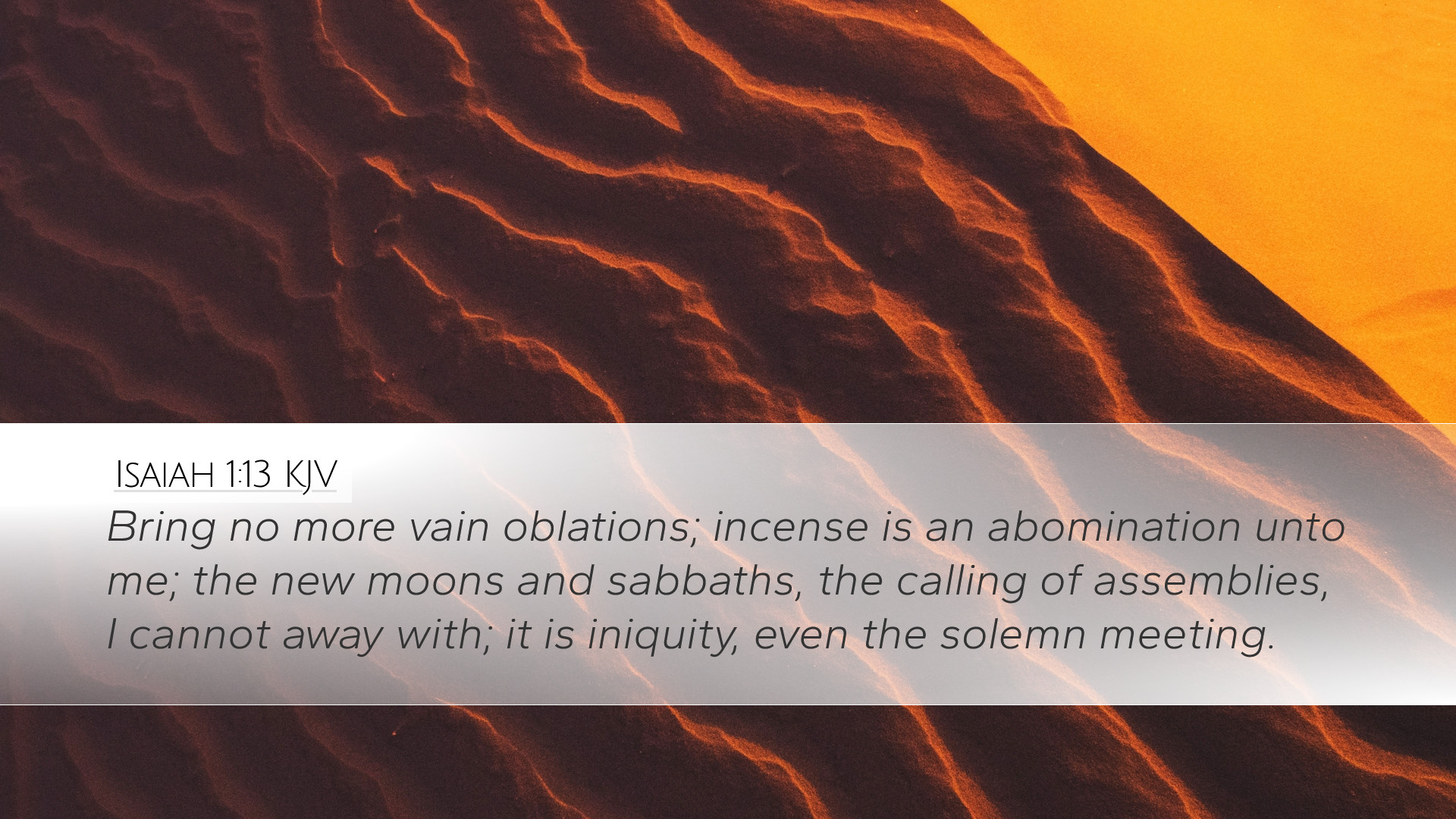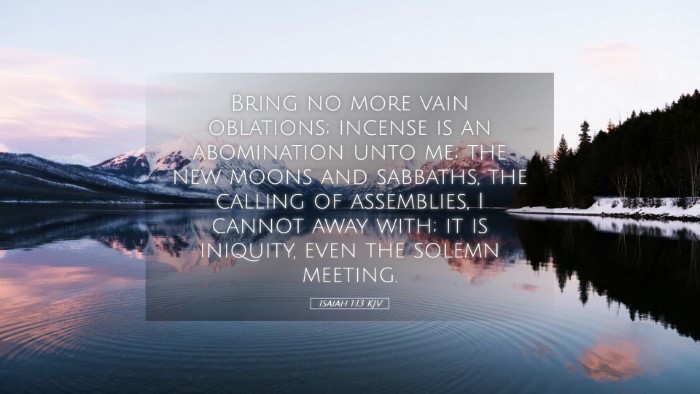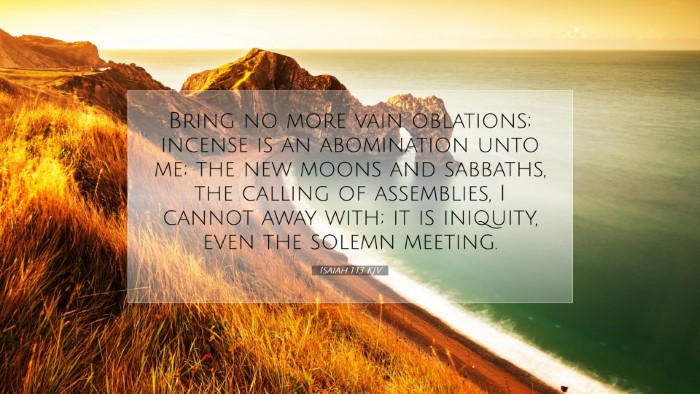Commentary on Isaiah 1:13
Verse: “Bring no more vain oblations; incense is an abomination unto me; the new moons and sabbaths, the calling of assemblies, I cannot away with; it is iniquity, even the solemn meeting.” (Isaiah 1:13, KJV)
Introduction
This verse comes from the opening chapter of Isaiah, a prophet whose messages often confront the people of Israel regarding their religious practices and moral failures. Here, God expresses His disdain for the empty rituals observed by the Israelites. Commentaries by respected scholars can provide a deeper understanding of the passage, its context, and its theological implications.
The Context of Isaiah 1
The first chapter of Isaiah is a prelude to the prophet's call for repentance. The people of Israel had become steeped in sin while maintaining superficial religious practices. God, through His messenger Isaiah, is addressing the insincerity that pervaded their worship.
Analysis of Key Elements
- Vain Oblations: The term “vain oblations” refers to offerings that are devoid of sincerity. Matthew Henry emphasizes that God desires the heart of the worshiper rather than empty gestures of devotion.
- Incense as Abomination: Incense in the Temple was meant to represent the prayers of the people. However, Albert Barnes points out that when used in a context of hypocrisy, it becomes loathsome to God. The act itself, though seemingly pious, was unwanted when separated from genuine faith.
- New Moons and Sabbaths: Adam Clarke elaborates on the significance of these festivals. They were commanded forms of worship, yet God declares that their ritualistic observance without true spirituality provokes His displeasure. The emphasis is that human traditions and rituals can never substitute for a right relationship with God.
- Solemn Meeting: The phrase denotes national gatherings for worship. Barnes interprets that even these solemn assemblies, apart from righteousness and justice, are seen merely as gatherings of iniquity. Worship is intended to deepen communion with God, which had instead turned into collective sinfulness.
Theological Implications
This verse challenges the notion of complacent religiosity. The Israelites believed that their ceremonial practices were adequate to satisfy God’s demands, but He rebukes them for their moral failings. Henry suggests that God would rather have a humble and contrite spirit than the wealth of offerings rendered insincerely.
Moreover, God underscores the importance of heart-based worship over external forms (John 4:24). True worship is inherently relational and transformative, reflecting God’s holiness in the pursuit of justice and mercy.
Applications for Today’s Believers
For modern believers, Isaiah 1:13 serves as a poignant reminder that worship must stem from genuine love and commitment to God. The line between spiritual formality and heartfelt devotion can easily be blurred. Here are some key applications:
- Evaluate Motives: Believers should regularly assess their motives in worship. Are they engaging in rituals out of habit or are they seeking to encounter the living God?
- Prioritize Heart Over Habit: Worship practices should be deeply personal and engaging. Churches may implement rituals, but the ultimate goal is to foster an atmosphere where God is genuinely honored.
- Integrate Justice and Mercy: As the Lord confronted the Israelites about their societal failures, believers today must ensure that their worship is reflected in their actions—particularly concerning justice and compassion in a hurting world.
Conclusion
Isaiah 1:13 calls for a radical transformation of how believers approach worship. It reminds us that God is not only interested in the actions we perform but the attitudes of our hearts. As pastors, students, theologians, and scholars reflect on this passage, it serves as a clarion call for sincere worship that is rooted in a life aligned with God’s values of justice, mercy, and humility.


